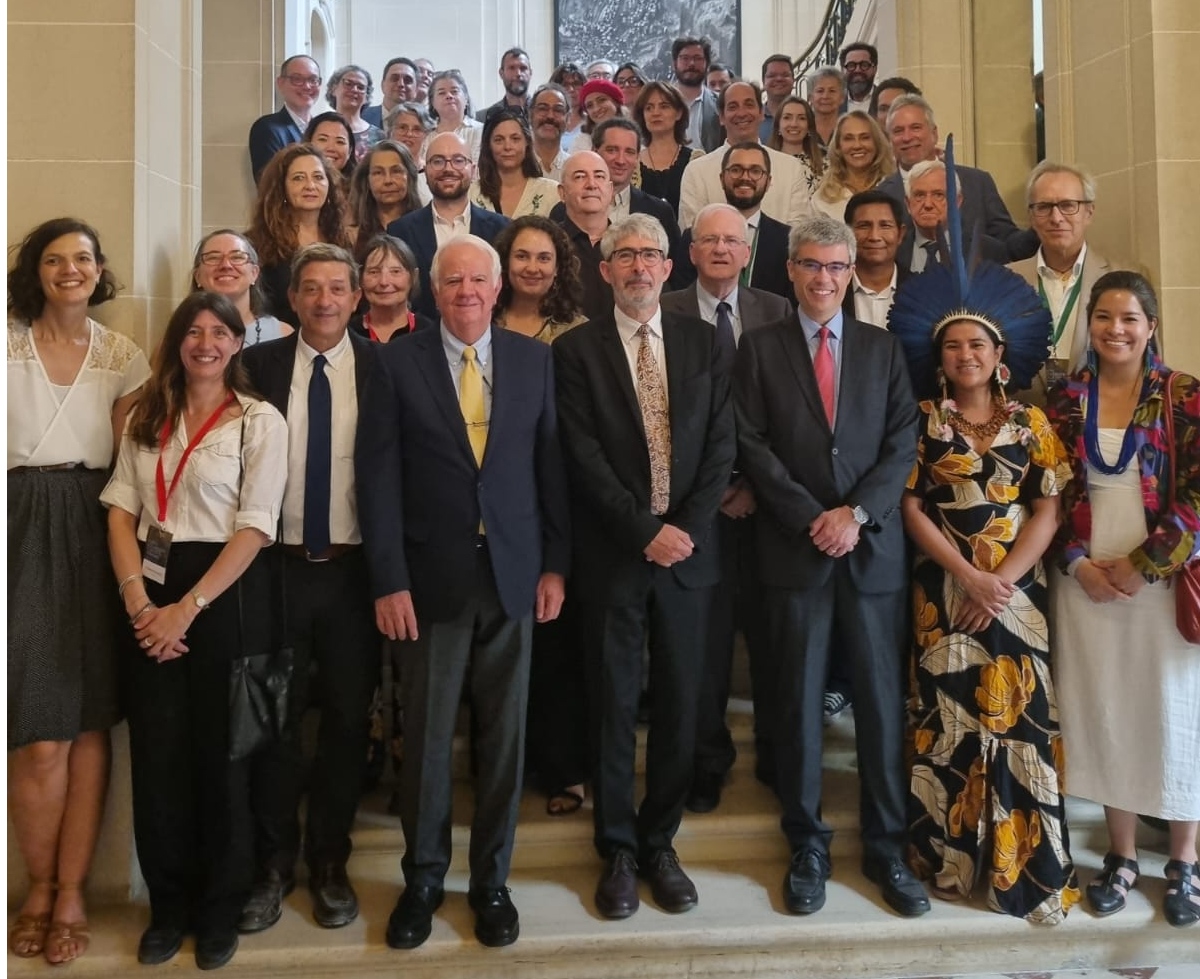

Zago: “I’m extremely pleased with the success of this mission here in France because we aren’t repeating things we already do together” (photo: Elton Alisson/Agência FAPESP)
During the visit, a cooperation agreement was signed between the University of São Paulo and the National Museum of Natural History.
During the visit, a cooperation agreement was signed between the University of São Paulo and the National Museum of Natural History.

Zago: “I’m extremely pleased with the success of this mission here in France because we aren’t repeating things we already do together” (photo: Elton Alisson/Agência FAPESP)
By Elton Alisson, from Paris | Agência FAPESP – On June 16th, the Brazilian Embassy in Paris welcomed a delegation of FAPESP executives and researchers who were participating in the Brazil-France Forum on Forests, Biodiversity, and Human Societies.
Organized by FAPESP in partnership with the University of São Paulo (USP), the event was held on June 16-18 at the National Museum of Natural History (MNHN) in Paris as part of the program for FAPESP Week France, which began on June 10th in Toulouse, in the capital of the Occitanie region in southern France.
The Brazilian delegation was welcomed by André Maciel, Minister Counselor at the Brazilian Embassy in Paris. “It’s a pleasure to see everyone here and to witness the intensity of the scientific and academic cooperation agenda between Brazil and France,” he said.
FAPESP President Marco Antonio Zago emphasized that the Foundation’s mission over the past two weeks has yielded positive results and will enable further scientific collaboration between the two regions, which is already substantial and has grown in recent years.
“I’m extremely pleased with the success of this mission here in France because we aren’t repeating things we already do together. In both Toulouse and here in Paris, we’re promoting different activities, including participation in VivaTech [Europe’s largest technology and startup fair], as well as forums on museology at the Museum of Man last week and on forests, biodiversity, and human societies at the Natural History Museum this week,” he said.
A collaboration agreement was signed between USP and the MNHN during the reception.
“We’re very happy to be working with the University of São Paulo, which is our primary academic partner, but we also collaborate with other Brazilian institutions. We’re also very grateful to have FAPESP on our side, which funds most of the research in the state of São Paulo and is an essential partner that helps structure scientific relations between Brazil and France,” said Giles Bloch, director of the museum. “I’ve already marked my calendar for October for the ‘return match’ in Brazil, where we’ll continue to strengthen our scientific ties in different areas of cooperation, including museums. I know that there are other important institutions in the state of São Paulo and in other regions of Brazil.”
USP was represented at the signing ceremony by Eduardo Neves, the director of the Museum of Archaeology and Ethnology (MAE-USP). “We’re having a wonderful time here in Paris. The events that began last week show the immense potential for collaboration that exists between our institutions, which isn’t new, but is constantly being renewed through new research perspectives that can indeed help build a very frank, honest, and productive relationship between us,” Neves said.
The FAPESP delegation included Scientific Director Marcio de Castro, Administrative Director Fernando Menezes, and Raul Machado, advisor to the Foundation’s Presidency and coordinator of the FAPESP Week initiative.
Republish
The Agency FAPESP licenses news via Creative Commons (CC-BY-NC-ND) so that they can be republished free of charge and in a simple way by other digital or printed vehicles. Agência FAPESP must be credited as the source of the content being republished and the name of the reporter (if any) must be attributed. Using the HMTL button below allows compliance with these rules, detailed in Digital Republishing Policy FAPESP.





